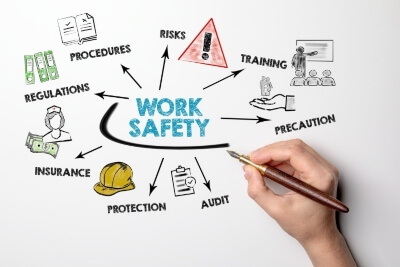Learning is something that all of us do continuously throughout our lives; it is inaccurate to say that any of us knows everything. In our world, change is constant. We must become familiar with what that change consists of. The only way to do this is to adapt through learning about it.
While it is easy to say that we can all learn and adapt to change, can all of us do that using the same methods?
Are there ways that we can improve the learning environment or how we provide information to accommodate almost any person?
The answer to this is absolutely.

Consider the following questions about yourself and the way you learn:
- When buying something new, do you read the instructions first on how to use it?
- When building something, do you follow the directions on how to put it together or just figure it out on your own?
- When someone asks you a question that you do not know the answer to, what do you do?
- Do you research subjects you are curious about through resources such as books, maybe the internet, or do you ask another person?
- Do you read the newspaper to stay up to date or do you watch/listen to news reports?
Based on how you answer the questions above, it may seem very clear regarding the best method of learning that is suited for yourself; however, you would be surprised how many responses may be different from yours.
This is just an example of how important it is that we find a way to get the same information through to people that all learn information in a different manner.
Below are some elements to consider about teaching adults. If you are able to incorporate these elements when teaching, you may be surprised at the result.
Adults are Self-Directed
While young students tend to be dependent on their teachers to guide their learning and provide opportunities for application, adult learners are the opposite.
Adult learners are usually mature and self-confident enough to know how they learn best, what their areas of strength and weaknesses are, and how to go about learning.
They don’t require much help acquiring resources or developing goals for education because, in most cases, they have done this before and already have their reasons.
Those who teach adults need to grant their learners plenty of space and be there to support rather than a guide.
Adults are Experienced
Children do not usually possess experience in the areas that they are learning in and may be learning a subject for the first time. This promotes the need for information and direction that they can use to build their experience, and thus they may be more likely to absorb more.
With adults, in many cases, they likely have some form of experience that may relate to the subject matter being taught. When an adult has experience in what is being taught, it is essential not to ignore it, but instead to build on it.
Most adults love to share their experience with others; they may see it as bragging or simply that they have “been there, done that.”
This type of attitude is something that can be built-on.
If you are teaching a subject to adult learners that they are experienced in, but refuse to acknowledge their experience, how do you think that learner would respond?
Perhaps they would feel offended, ignored, or may simply refuse to listen. Doing this can also make the instructor seem like a “know-it-all.”
If we ask the adult learners for their thoughts, opinions, or examples of the subject as it relates to their experience, do you think you would be more likely to get their “buy-in” on the subject matter and perhaps add further value?
Or maybe an opportunity would be created to correct an experience-based misconception about the subject being taught?
Material Relevancy
Have you been in a course, such as WHMIS, where the instructor started talking about another subject, such as forklifts, in an environment where there were none?
How valuable is that discussion/information, and what is a learner gaining from that?
Relevancy is crucial to the adult learner; if the information is not relevant to the subject matter or does not apply to them, there is a likely chance that the learner is not going to listen.
Adult learners are in a program for one reason only, to learn about the subject as it relates to them.
Talking about things outside of the scope of the program or outside of what they do is not seen as beneficial or relevant and is more likely to detract from the learning experience.
As an instructor, your job is to teach adults what they need to know and make it as relevant to them as possible.
Motivation
Adult learners require motivation to learn; essentially, “how is this going to benefit me?”
If we are unable to demonstrate how the subject matter is going to motivate the learners, then there is a good chance that the information you are going to pass along may be ignored or forgotten.
Motivating learners can be done in various ways.
Try starting your program off by asking the learners a question. Consider: “why do you believe forklift training is necessary?” or “what does WHMIS mean to you?”
While these are straightforward questions with straightforward answers, they allow participants to say why they are there, and they will enable the instructor the opportunity to explain how the subject being taught may affect them, perhaps on a work-related and personal level.
Our role as an instructor is to identify a learner’s motivation and encourage it as much as possible; after all, that is what an instructor does.
The process of learning never stops.
As the world changes, as new technologies emerge, as new techniques are created, we must all learn and adapt to them.
Mahatma Gandhi once said,
“live as if you were to die tomorrow; learn as if you were to live forever.”
Remember that knowledge is power, information can be liberating, and education is the premise of success; but it all starts with providing the knowledge.
For more information on Adult Teaching Foundations, please click here.
David Ardito
Consultant with Industrial Safety Trainers





